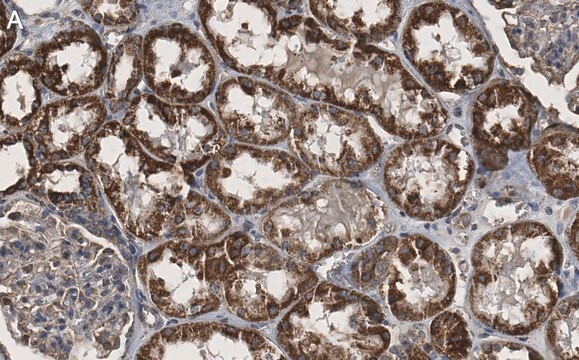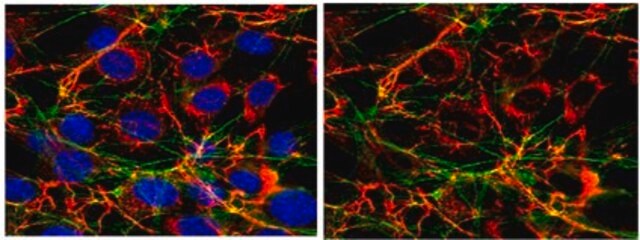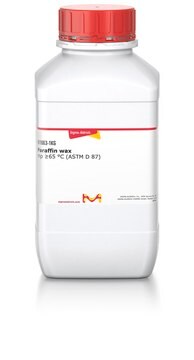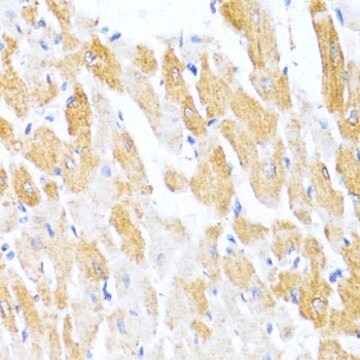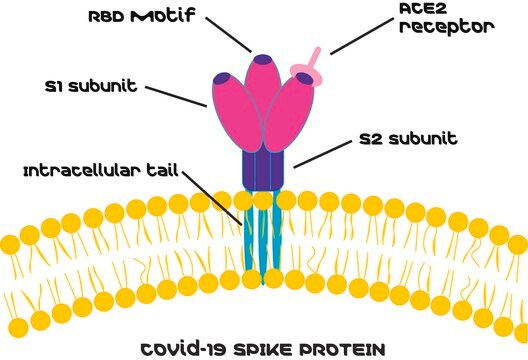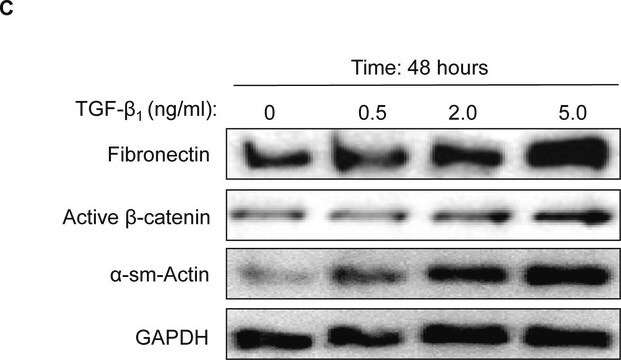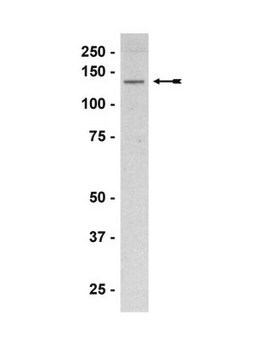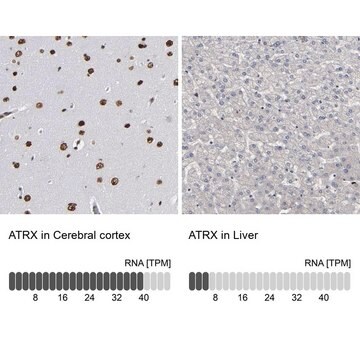SAB4200401
Anti-CTGF antibody, Mouse monoclonal
clone CTGF-14, purified from hybridoma cell culture
Sinónimos:
Monoclonal Anti-CCN family member 2, Monoclonal Anti-CCN2, Monoclonal Anti-CTGF antibody produced in mouse, Monoclonal Anti-Connective tissue growth factor, Monoclonal Anti-HCS24, Monoclonal Anti-Hypertrophic chondrocyte-specific protein 24, Monoclonal Anti-IBP-8, Monoclonal Anti-IGF-binding protein 8, Monoclonal Anti-IGFBP-8, Monoclonal Anti-IGFBP8, Monoclonal Anti-Insulin-like growth factor-binding protein 8, Monoclonal Anti-NOV2
About This Item
Productos recomendados
origen biológico
mouse
conjugado
unconjugated
forma del anticuerpo
purified from hybridoma cell culture
tipo de anticuerpo
primary antibodies
clon
CTGF-14, monoclonal
Formulario
buffered aqueous solution
mol peso
antigen ~38 kDa
reactividad de especies
human
concentración
~1.0 mg/mL
técnicas
immunoprecipitation (IP): suitable
western blot: 0.25-0.5 μg/mL using whole extracts of HEK-293T cells over-expressing CTGF.
isotipo
IgG1
Nº de acceso UniProt
Condiciones de envío
dry ice
temp. de almacenamiento
−20°C
modificación del objetivo postraduccional
unmodified
Información sobre el gen
human ... CTGF(1490)
Descripción general
Especificidad
Inmunógeno
Aplicación
Acciones bioquímicas o fisiológicas
Forma física
Almacenamiento y estabilidad
Cláusula de descargo de responsabilidad
¿No encuentra el producto adecuado?
Pruebe nuestro Herramienta de selección de productos.
Opcional
Código de clase de almacenamiento
10 - Combustible liquids
Punto de inflamabilidad (°F)
Not applicable
Punto de inflamabilidad (°C)
Not applicable
Elija entre una de las versiones más recientes:
Certificados de análisis (COA)
¿No ve la versión correcta?
Si necesita una versión concreta, puede buscar un certificado específico por el número de lote.
¿Ya tiene este producto?
Encuentre la documentación para los productos que ha comprado recientemente en la Biblioteca de documentos.
Nuestro equipo de científicos tiene experiencia en todas las áreas de investigación: Ciencias de la vida, Ciencia de los materiales, Síntesis química, Cromatografía, Analítica y muchas otras.
Póngase en contacto con el Servicio técnico